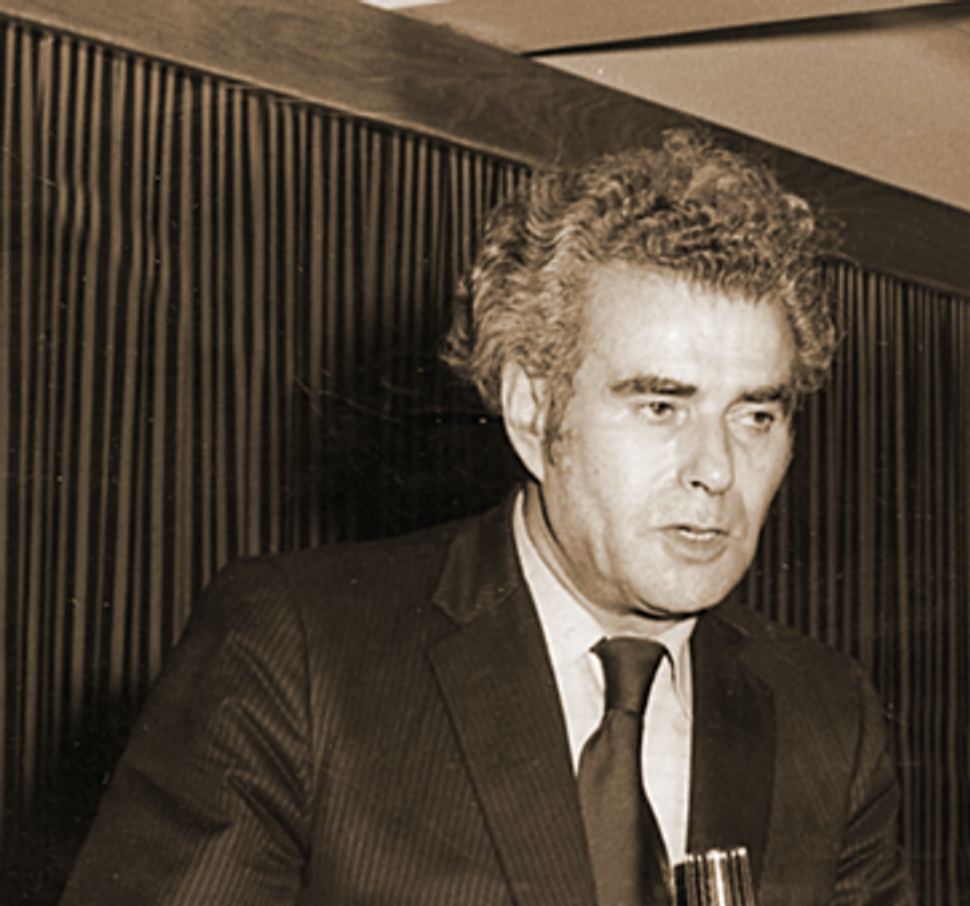WATCH: Poet And Refusenik Yosef Kerler Remembers Terrifying Run-In With KGB

Image by Forward Association
This article originally appeared in the Yiddish Forverts.
In this moving video, we learn about the dramatic life of the great Yiddish poet from the former Soviet Union, Yosef Kerler, in both his own words and through the eyes of his son, the poet Boris Karloff.
In one scene, Kerler describes the terrifying moment when KGB agents attacked one of his favorite teachers.
Kerler was born in Haysyn, Ukraine in 1918. His family later moved to a Jewish collective farm. His first Yiddish poetry was published in an Odessa newspaper in 1935. After openly protesting the government’s ban on teaching Yiddish in the schools of the Jewish Autonomous Region, he was sentenced to 10 years in a gulag for “anti-Soviet activity.” While serving his sentence, he continued to write in Yiddish.
Kerler and his wife, Anya, were among the first “refuseniks;” in 1979, the Soviet government finally allowed them to emigrate to Israel, where they settled in Jerusalem. There, Kerler organized a Jerusalem branch of the Yiddish Writers Association and helped institute, for the first time, public commemorations of the Yiddish writers, actors and intellectuals murdered by the Stalinist regime.
This documentary is one of ten in which acclaimed Yiddish writers of the pre-war generation speak openly about their lives. The films, in Yiddish with English subtitles, were directed by award-winning writer and former Forverts editor Boris Sandler and produced through the Forward Association as a DVD series called “Monologues of Yiddish Writers.”

















